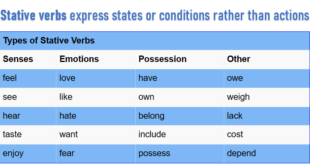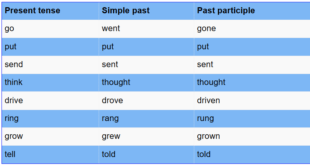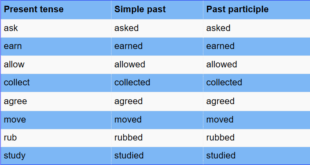![]()
A pronoun is a word that we use instead of a noun or a noun phrase to avoid repeating the same noun again and again (e.g., I, you, he, she, it, we, or they, the landowner).
Types of Pronouns
Personal pronouns
These pronouns take the place of a person or thing, primarily to avoid repetition:
- My name is Mike. I have two brothers.
- Don’t ask Mike; he won’t know.
- Jane feels sleepy; drive her home.
| Person | Subject Pronouns | Object Pronouns | |
| Singular | First | I | Me |
| Second | You | You | |
| Third | She, He, It | Her, Him, It | |
| Plural | First | We | Us |
| Second | You | You | |
| Third | They | Them |
Subject personal pronouns
The subject in a sentence is a person, thing, or place that is doing something.
Subject pronouns are pronouns that take the place of the subject.
- I saw Molly yesterday.
- She was too sad.
We use he to refer to a man and she to refer to a woman.
If we are not sure if the person is a man or woman, we use “he or she” and they.
- Ask your teacher; he or she will help you.
- Ask your teacher; they will help you.
We use it for singular things or most animals.
- I like this car; it is very comfortable.
- Look at that horse; it is very fast.
If the animal is a family pet, we use he (male) or she (female).
- We have a pet dog; he is very cute.
We use “she“ for ships.
- The Titanic was a great ship. She sank in April 1912.
Object personal pronouns
The object in a sentence is a person, thing, or place that receives the action.
Object pronouns are pronouns that take the place of the object.
- Jim saw me yesterday.
- I’m going to drive them there.
noun / pronoun + I / me
It’s considered more polite to put the other person first.
-
- He and I had lunch together.
- They gave the money to Jim and me.
- You and I are of one mind on this matter.
We use indefinite pronouns to refer to people or things that are not definite or specific. Singular: Use no and not any in negative statements. Do not use another negative with nowhere, nothing, or nobody. Add ‘s to an indefinite pronoun to make a possessive. Plural: both, few, fewer, many, others, several Singular and plural: all, any, more, most, none, some
These pronouns show ownership or relationship: As the subject of a sentence As the object of a sentence Do not use ‘s after this type of pronouns. Do not use a possessive pronoun before a noun. Possessive pronouns are the same for singular and plural nouns. How to replace the possessive adjective + noun with a possessive pronoun
These pronouns are words that we use when the subject and the object of a sentence are the same. as a direct object as an indirect object as object of a preposition by oneself (alone, without the help of anyone else) When we remove reflexive pronouns, the sentence doesn’t make much sense. Reflexive pronouns are used after certain verbs. amuse, ask, behave, burn, buy, dry, encourage, enjoy, get, help, hurt, introduce, look after, make, see, take care of, talk to, teach, tell, wash, watch. In common actions, we usually drop the pronoun.
These pronouns are words that we use to emphasize the subject in a sentence. When we remove the intensive pronoun from a sentence, the sentence still makes sense. The position of the intensive pronoun is either after the subject or at the end of the sentence.
These pronouns are used in complex sentences and refer to nouns in the main clauses. We use them to introduce subordinate clauses or noun clauses. who/whoever (modify the subject or object and refer only to people) whom/whomever (modify the object, refer to people, and are only common in formal styles) which/whichever (modify both subject and object and refer to things, qualities, and ideas) that modifies subject and object and refers to people, things, qualities, and ideas to specify a person or thing. whose / whosever (show possession and refer to people, things, qualities, and ideas) In informal or spoken English, it is common to drop a relative pronoun if it functions as ‘object’ and it’s in identifying clauses.
We use demonstrative pronouns to point something out and replace nouns or noun phrases. We use ‘this’ and ‘these’ to introduce people. We use singular to introduce people by their names. We use ‘this’ and ‘that’ to introduce someone when they are speaking on the phone. When an action is near or far in time When we are answering a question, it is not necessary to repeat the pronoun. Instead, we can use ‘it’ for singular and ‘they’ for plural.
We use interrogative pronouns to ask questions about someone or something that we do not know about. Who and whom “Whom” is becoming less and less common, and “who” is taking the place of “whom” as an object pronoun. What vs. which We use “what” when options or possibilities are large or unknown. We use “which” when we have options to choose from.Indefinite pronouns
some
any
no
every
Place
somewhere
anywhere
nowhere
everywhere
thing
something
anything
nothing
everything
person
someone/somebody
anyone/anybody
no one/nobody
everyone/everybody
another
the other
either
neither
each
little
less
much
Possessive pronouns
Singular
Personal pronoun
Possessive adjectives
Possessive pronouns
I
my
mine
You
your
yours
He
his
his
She
her
hers
It
its
its
Plural
We
our
ours
You
your
yours
They
their
theirs
Reflexive pronouns
singular
Subject pronouns
Reflexive pronouns
I
myself
you
yourself
he
himself
she
herself
it
itself
plural
we
ourselves
you
yourselves
they
themselves
Intensive pronouns
singular
Subject pronouns
Intensive pronouns
I
myself
you
yourself
he
himself
she
herself
it
itself
plural
we
ourselves
you
yourselves
they
themselves
Relative pronouns
Relative Pronouns
Usage
who/whoever
object and object, and refer only to people
whom/whomever
object, refer to people, and are only common in formal styles
which/whichever
subject and object and refer to things, qualities, and ideas
whose/whosever
show possession and refer to people, things, qualities, and ideas
where/wherever
refers to places
when/whenever
refers to time
that
refers to people, things, and animals
why
refers to reasons
.
Demonstrative pronouns
Demonstrative Pronouns
here/near
there/far
singular
this
that
plural
these
those
Interrogative pronouns
Interrogative Pronouns
Usage
Example
who
person (subject)
Who are you?
whom
person (object)
Whom did you invite?
whose
person (possessive)
Whose is this pen?
what
thing
What did you wear?
which
person/thing
Which is your brother?


